Class Lights what are they and what purpose did they serve. in Tales of the Jointed Track
- June 5, 2015, 5:03 p.m.
- |
- Public
Although class lights are not used in modern railroading, they once served a purpose. In the days of train orders and first and second class trains, these were essential. The identification of the engine number in the order, but what signals was it carrying?
This is how this all blends together. This is from a 1966 Santa Fe Railway (ATSF) rulebook. The main reason, is because we operated with train orders. In 1982 the Santa Fe joined with other railroads to have one overall rule book. That is known as the GCOR or General Code of Operating Rules. Like I wrote in past entries, we on the Joint-Line were required to carry a Burlington Northern rule book, a Rio Grande (D&RGW) rule book and a Santa Fe rule book. So you can see how GCOR simplifies the whole thing. Now also in 1982 the track warrant came out, so train orders aren’t used any more. The track warrant is a modern train order, is simpler and does away with Right, Class and Direction. A train dispatcher can and does authorize running from point A to point B, even with “HOT” trains in the mix, and keep the operation functioning.
Superiority of trains
Any rule preceding with S is single track. Any rule preceding with D is double track operation.
-
S-71: A train is superior to another train by right, class, or direction. Right is conferred by train order; class and direction by time table. Right is superior to class or direction. Direction is superior as between trains of the same class.
-
D-71: A train is superior to another train by right or class. Right is conferred by train order; class and by time table.
Right is superior to class. -
72: Trains of the first class are superior to those of the second class.
side note-a first class train would be a Passenger train or a Fast Mail. A second class train would be a RED BALL priority freight. like 199 or the 114 for example. -
S-72: Trains in the direction specified y the time table are superior to trains of the same class in the opposite direction.
-
73: Extras and work extras are inferior to regular trains.
-
20: All sections, except the last, will display two green flags (days) and two green lights in the places provided for that purpose on the front of the engine.
-
21: Extra and work extras will display two white flags (days) and two white lights in the places provided for that purpose on the front of the engine.
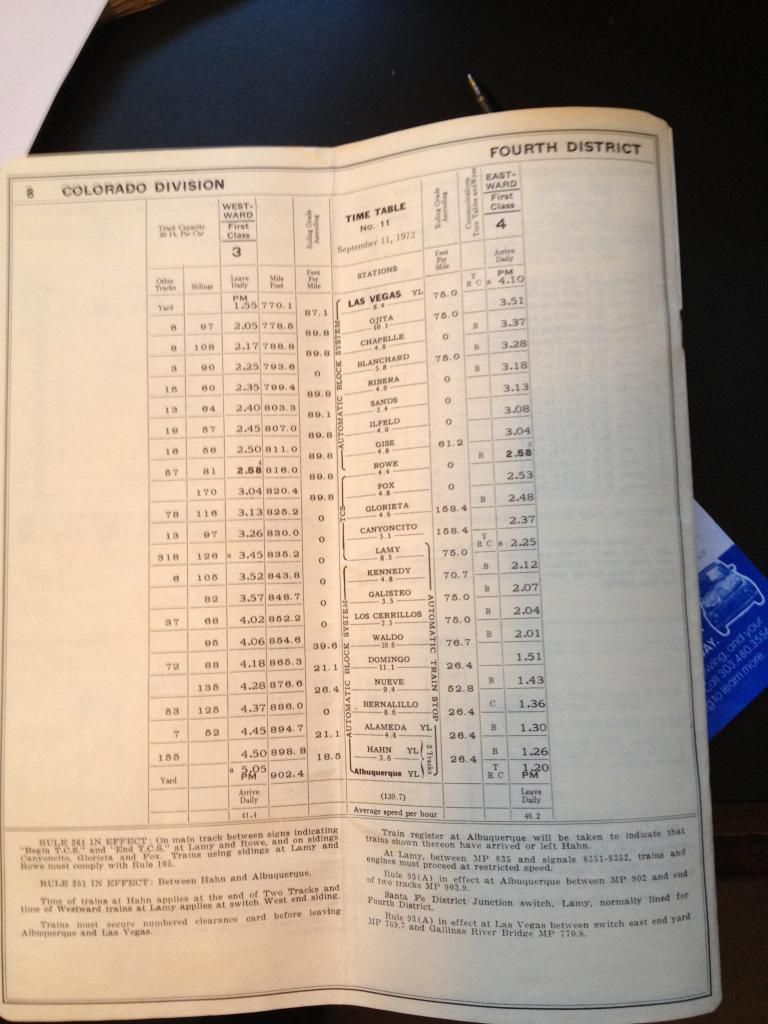
Fourth District Timetable Las Vegas,NM to Albuquerque, NM you can see the first class train Santa Fe 3 westward and Santa Fe 4 eastward. Probably the old Santa Fe Chief
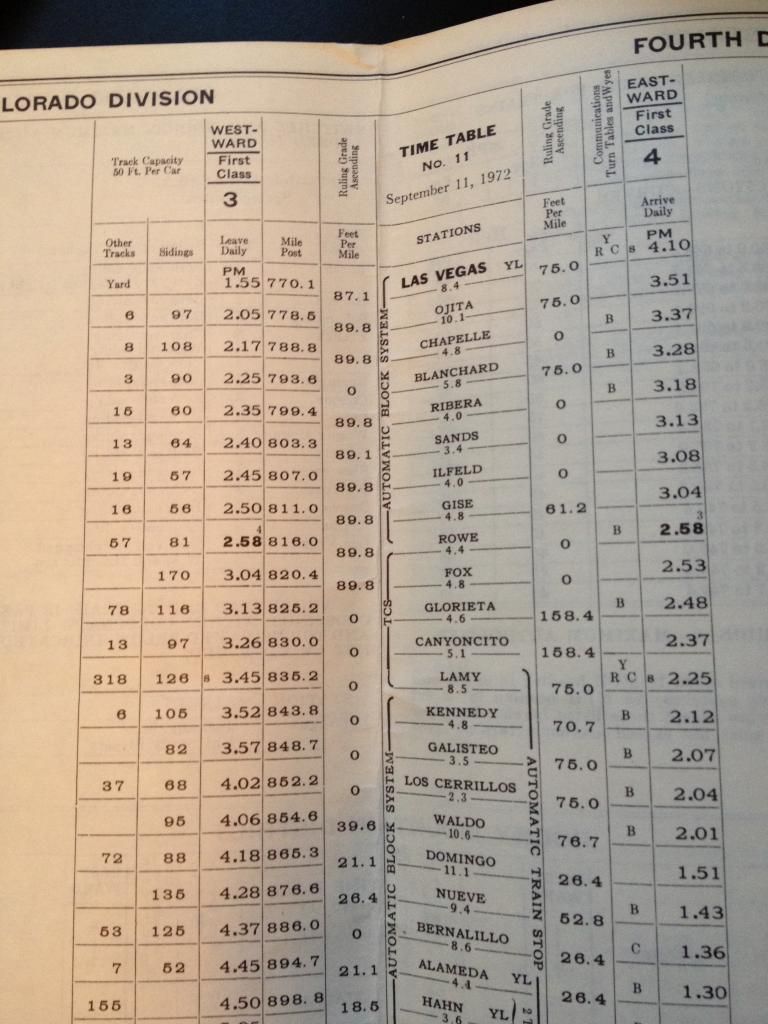
Look at the station ROWE..Thats the first class meeting point. Yes there will be a train order. The bold print..that’s the on time schedule meeting point. The westward passenger train takes siding due to rule 72. If they are delayed or late another order will be issued.
Examples of Class Lights displayed:
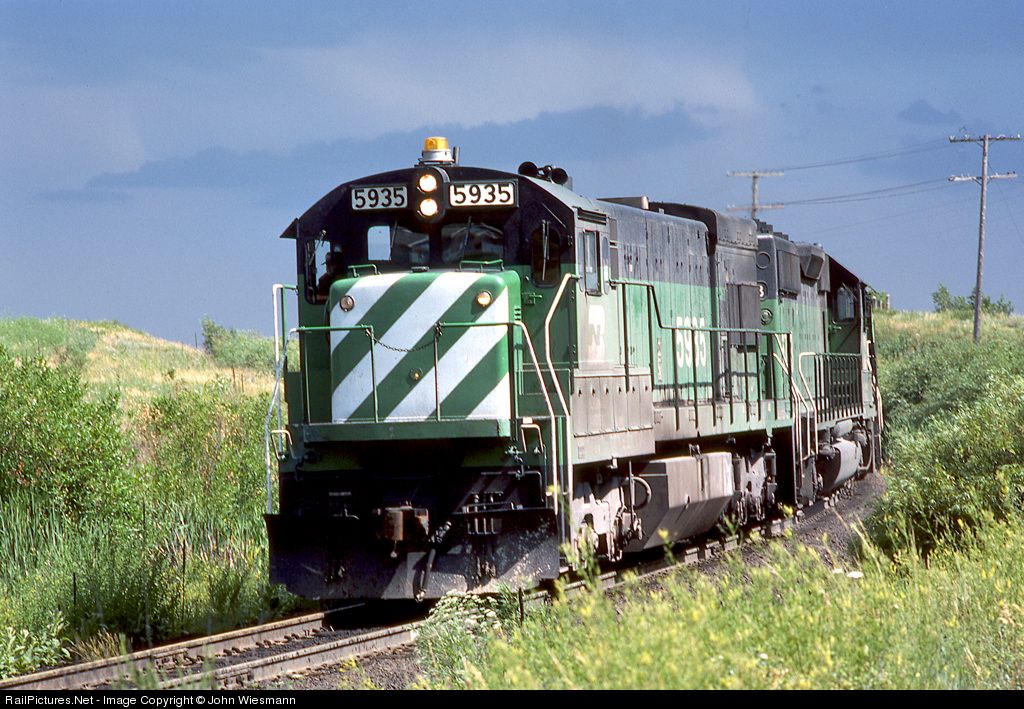
A GE U-30-C locomotive with the “WHITE” class lights lit on the nose. This denotes an Extra, by rule. They are on CTC one quarter mile from the summit at Palmer Lake, CO and start of Double track ABS northbound.
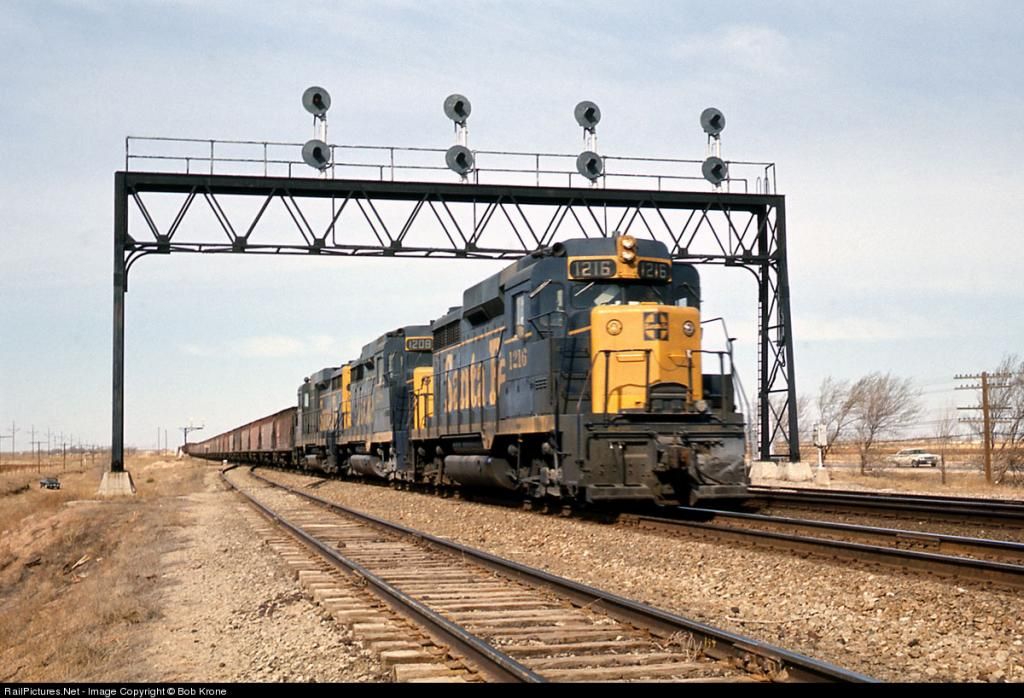
An EMD set of GP-30’s with the class lights in the nose, showing running extra
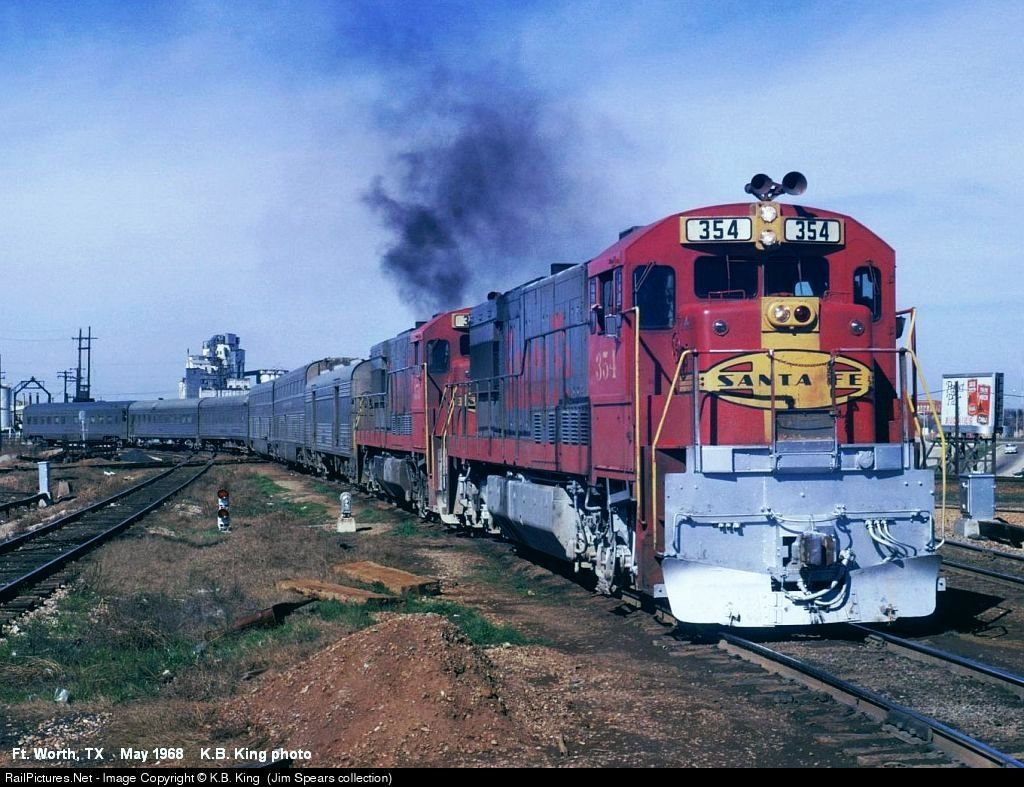
A Santa Fe Passenger train at Ft.Worth, TX. Notice on the nose of the U-28-CG the class lights are dark. This signifies a first class train, by rule and by timetable. If there was a second section, ATSF 354 would have been displaying green class lights. You might see green in the nose due reflection. If they were on.. the crews would know. In doubt ask “Are ya carrying signals for a following section?” The crew will tell ya. All about communication field and dispatching. Remember the Class Lights have to be illuminated and/or displaying flags.
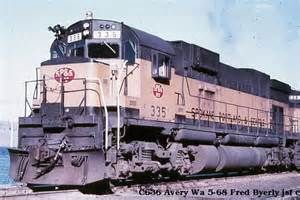
A former SP&S ALCO C-636 notice the three class lights above the number board (335) orientation from the head light RED-GREEN-WHITE
Last updated June 05, 2015



MageB ⋅ June 05, 2015
Yes, it was good to simplify things. Thanks for the lessons./